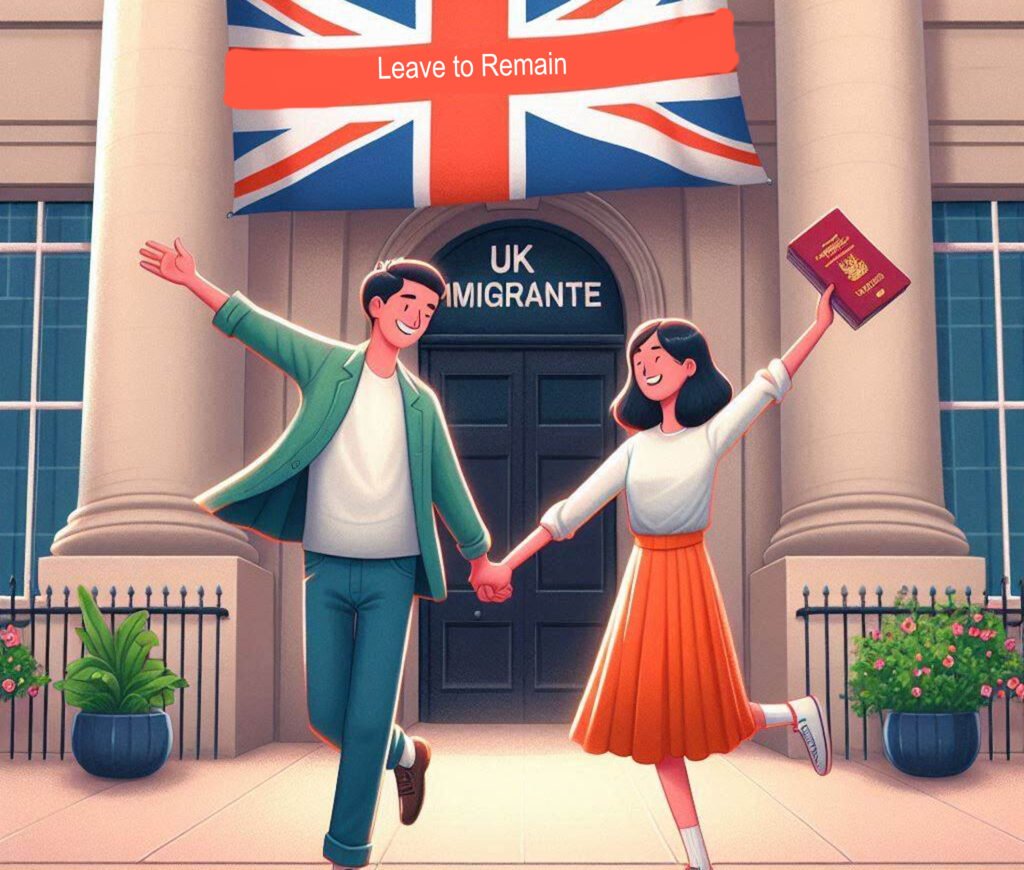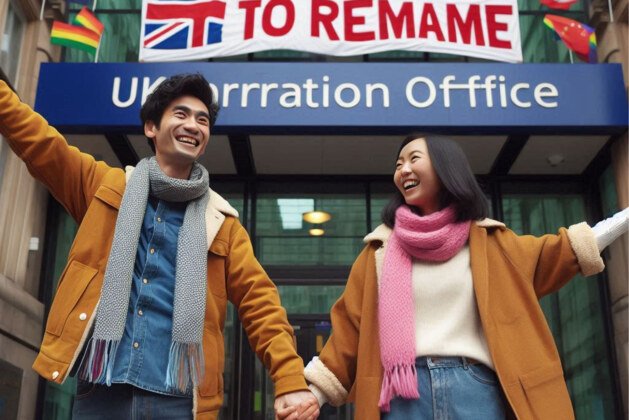Table of Contents
What is UK Indefinite Leave to Remain (ILR)?
Indefinite Leave to Remain (ILR) is a form of permanent residency in the UK, allowing foreign nationals to reside without any time restrictions. Typically, applicants can pursue ILR after living in the UK for five years, although in some cases, they may qualify earlier, such as after 2 or 3 years.
ILR can be obtained through various visa categories, including the Skilled Worker Visa, Innovator Founder Visa, and Spouse Visa. Holding ILR is a crucial step towards naturalization and full citizenship in the UK.
Eligibility Criteria and Requirements for ILR
The specific requirements for ILR depend on the applicant’s current visa and individual circumstances. However, some fundamental prerequisites are:
- Lawful Residence: You must have legally lived in the UK for a designated period, typically five years.
- Work and Residence Requirements: You need to meet work requirements with specific exceptions and must not exceed 180 days of absence from the UK per year.
- Life in the UK Test: This test assesses your knowledge of British customs, history, and culture.
- English Language Proficiency: You must demonstrate English language skills at the B1 level on the Common European Framework of Languages.
Exemptions from the UK Indefinite Leave to Remain
Certain individuals are automatically granted settled status without needing to apply for ILR. These include:
- Those who qualify for automatic citizenship through ancestry
- Dependant children of permanent residents or British citizens
- Adults reliant on their British citizen family members for long-term care
- Refugees resettled under the Gateway Protection Programme
Routes Leading to Indefinite Leave to Remain
Various visa pathways can lead to ILR. If you have been residing in the UK lawfully under a settlement visa, you can apply for ILR after meeting the required time period and additional conditions. These pathways include:
| Unmarried Partner Visa | UK Ancestry Visa |
| Family Visa | Investor Visa (Tier 1) |
| Spouse Visa | Minister of Religion Visa (T2) |
| Innovator Visa | Long residence |
| Start-up Visa | Retired Person Visa |
| Sportsperson Visa (T2) | Senior or Specialist Worker Visa |
| Skilled Worker Visa | Returning resident |
| Global Talent Visa | Contact as Now |
Applying for ILR After 5 Years
Generally, foreign nationals can apply for ILR after five years of lawful residence in the UK. Some visas that require a five-year residency include:
- Family Visa
- Spouse Visa
- Unmarried Partner Visa
- Permanent Work Visa
- Skilled Worker Visa
- UK Ancestry Visa
In certain cases, applicants may qualify for ILR in less than five years:
- Innovator Visa: Eligible after three years based on business achievements.
- Entrepreneur Visa: (No longer valid) Eligible after three years based on business operations.
- Global Talent Visa: Eligible after three years if approved for ‘exceptional talent’ or similar.
- Investor Visa (Tier 1): Eligible after two or three years based on business activities.
Commonwealth citizens who served in the armed forces may qualify after four years. For long-term residents, eligibility is ten years if over 18 or seven years if under 18.
Overview of Life in the UK Test
The Life in the UK test is a mandatory part of the ILR application process. It covers British culture, history, and customs and consists of 24 random questions to be answered in 45 minutes. A passing score is 75%. The test costs £50 and is available at over thirty approved locations. Exemptions apply to those under 18, over 65, or with certain medical conditions.
English Language Test
Applicants for ILR must demonstrate English proficiency at the B1 level. This is typically proven through a recognized test certificate or online results. Exemptions include citizens of Commonwealth countries where English is the official language, people over 65, degree holders from English-medium institutions, and certain other categories.
The following applicants will not have to show that they can speak English:
- People aged 65 and up
- Degree holders from an approved institution where English was the medium of instruction
- People who are receiving emergency aid
- Domestic violence victims
- An English native or settled person who was married to or lived with a person who had died.

Which documents are required to apply for Indefinite Leave to Remain?
A variety of supporting documentation must be included with your Indefinite Leave to Remain application. Furthermore, this pertains to you and any dependents who are making a request on your behalf.
It is important to keep in mind that the documents you submit should be the original ones. Moreover, you will have to justify if you are not able to provide the original documents. The Home Office will be lenient if you are unable to obtain the original documents due to exceptional situations.
Typically, the following information and documents are required from you:
- Travel documents and passport, including any previous passports that were valid while you were in the UK
- Certificates of adoption or birth
- Records that show any period you spent living outside of the UK, such as travel documents
- A certificate from the police if you had to register when you came to the UK
- A record of your immigration background
- Financial data, including bank statements
- Obtain a certificate of life in the UK.
- Pass certification (if not exempt) showing a B1 English proficiency
- Two matching passport-sized pictures
Our experienced UK immigration Cafe can help you with your immigration process.
What is the Indefinite Leave to Remain Fee?
Currently, each applicant must pay £2,389 in order to submit an application for UK Indefinite Leave to Remain. In 2022 the fees for ILR are the same as the 2021 ones.
It additionally costs £19.20 to register biometric data, which is required as part of the ILR application procedure. Moreover, if you apply as a family, your dependents must pay the entire price of £2389.
You can also choose an expedited service in case you require a prompt decision about your application. Additionally, the priority service processes your request within 5 business days, which charges an extra £500, and one working day by the super-priority service, which charges an additional £800.
What are the reasons for the Refusal of Indefinite Leave to Remain in the UK?
There are several reasons why an ILR application might be turned down. The authorities can turn down ILR applications if:
- Criminal Behaviour
- Giving wrong information on the application
- Not meeting the standards (most of the time, applicants are turned down for ILR because they have not been in the UK for the full qualifying period on an eligible visa).
- Previous ban from entering the UK.
- People think that approval could be better.
- Being a part of a fake marriage or civil partnership
- Having broken immigration rules before
- Failure to give the needed information
At UK Immigration Cafe, we know how upsetting and stressful it can be when your ILR application is turned down, or a family member who depends on you is turned down. We have a lot of experience overturning ILR denials and giving our clients the best chance of victory. Call our ILR lawyers at 0161 222 5860 to talk to one of them.
When my ILR expires, will I automatically be granted British citizenship?
Obtaining Indefinite Leave to Remain is a significant step towards obtaining British citizenship. However, after a specific amount of time, you will not automatically acquire British citizenship if you live under ILR status.
If your situation hasn’t changed substantially, you can apply for British citizenship after being in the UK for a full year under ILR. To obtain complete British citizenship, you need to fill out and submit a request to the Home Office for British citizenship by naturalisation.
As a British citizen, you will soon be able to submit an application for a British passport and enjoy all of the advantages of citizenship.




[…] The UK government raised the minimum income requirement for a Spouse Visa to £29,000. The rate will then be raised to £34,500 and then to £38,700. This has made it harder for partners who want to live together in the UK. These changes will occur starting April 11, 2024, and will likely affect many applicants. Before the changes, it was harder to get this way. The number of refusals for UK spouse visas will likely rise in line with the higher cash requirement. […]
[…] Indefinite Leave to Remain (ILR): After 5 years on a spouse visa, you may apply for ILR, allowing you to live in the UK permanently. […]